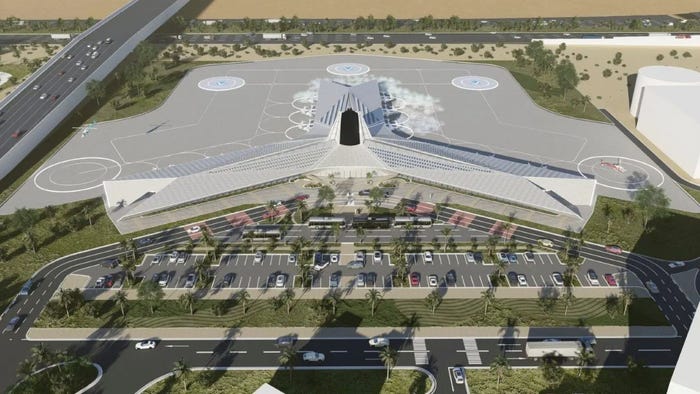AI-Powered Dental Robot Completes World's First Automated ProcedureAI-Powered Dental Robot Completes World's First Automated Procedure
Perceptive's AI-powered robotic system completes crown replacements in 15 minutes, promising improved accuracy and access to dental care

A Boston-based startup has conducted the world’s first fully automated dental procedure on a human using its robotic dentistry technology.
Perceptive’s FDA-approved dental robot is powered by AI-driven 3D imaging software, which guides a robotic arm to perform dental procedures.
The system can perform restorative dentistry works, such as replacing crowns in 15 minutes, a procedure that typically takes two office visits.
It can also identify potential issues with a patient’s teeth and gums with high accuracy.
“We’re excited to successfully complete the world's first fully automated robotic dental procedure,” said Chris Ciriello, Perceptive’s founder and CEO. “This medical breakthrough enhances precision and efficiency of dental procedures, and democratizes access to better dental care, for improved patient experience and clinical outcomes.”
Perceptive’s robotic system leverages 3D volumetric data to plan diagnostics and procedures.
It conducts an optical coherence technology (OCT) scan of a patient’s tooth or mouth using a handheld intraoral scanner.
The scanner also captures 3D images beneath the gum line, providing detailed insights into the health of a patient’s entire mouth.
The image data captured by the scanner can then be seen by patients, providing them with a better understanding of where treatment is needed.
The data is then analyzed by AI algorithms to plan treatments, enabling entirely automated dental procedures to be performed by a specially designed robotic arm fitted with dentistry equipment.

Credit: Perceptive
Perceptive states that its AI-powered robotic system enables dentists to diagnose and treat more patients with higher quality care in less time, reducing the need for manual labor and minimizing the chances of human error.
“Perceptive’s technology achieves over a 90% accuracy rate for detecting caries without the ionizing radiation associated with traditional X-rays and CBCT scanners — a significant improvement over the approximately 40% accuracy of 2D X-rays,” said German Gallucci, who chairs restorative dentistry at Harvard School of Dental Medicine. “This ensures safer and more precise diagnoses, enhancing patient care and safety.”
Perceptive has raised $30 million in funding to date from backers including Y Combinator, PDS Health and Ed Zuckerberg, renowned dentist and father of Meta CEO, Mark.
“The robotics system has been designed and rigorously tested to ensure that dentists can perform treatments safely, even in conditions where patient movement is prevalent,” said Zuckerberg. “This commitment to safety is core to Perceptive's dedication to providing reliable and effective dental care solutions using state-of-the-art technology.”
About the Author
You May Also Like
.jpg?width=100&auto=webp&quality=80&disable=upscale)
.jpg?width=400&auto=webp&quality=80&disable=upscale)




